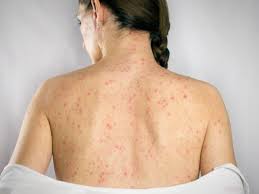What Sudden Shingles Symptoms Could Mean For Your Overall Health
Shingles(شكل الحزام الناري في الرياض) is a viral infection caused by the reactivation of the varicella-zoster virus, the same virus responsible for chickenpox. Experiencing sudden shingles symptoms can be alarming and may raise concerns about your overall health. Understanding these symptoms early and knowing what they might indicate is crucial for timely management and avoiding complications.
Understanding Shingles and Its Symptoms
What Causes Sudden Onset of Shingles Symptoms?
The sudden onset of shingles symptoms typically happens when the dormant varicella-zoster virus reactivates due to weakened immunity, stress, or other triggers. This reactivation causes inflammation in the nerves, leading to the classic symptoms of shingles. Sudden symptoms can include pain, tingling, itching, and the appearance of a rash in specific body areas, often on one side.
Early Signs to Watch For
Early symptoms may be subtle and include localized burning pain, unusual sensations like tingling or numbness, and sensitivity to touch before any visible rash appears. These signs often precede the rash by several days, giving a critical window for early intervention.

What Sudden Shingles Symptoms Reveal About Your Health
The Role of Your Immune System
Sudden shingles symptoms are a strong indicator that your immune system is compromised or under stress. Conditions such as aging, chronic illness, or temporary immune suppression can allow the virus to reactivate. These symptoms signal that your body needs support to combat the viral reactivation effectively.
Impact on Nervous System Health
Because shingles affects nerve tissues, sudden symptoms like sharp pain or numbness underscore nerve inflammation or irritation. This involvement raises concerns about potential complications such as postherpetic neuralgia, a condition marked by persistent nerve pain even after the rash heals.
Connection to Underlying Health Issues
In some cases, sudden shingles symptoms may hint at underlying health problems that require medical attention, such as diabetes or autoimmune disorders. These conditions can weaken your immune defense and increase susceptibility to shingles outbreaks.
Managing Sudden Shingles Symptoms for Better Health
Early Diagnosis and Medical Intervention
The key to minimizing the impact of sudden shingles symptoms is to seek prompt medical care. Early diagnosis can help initiate antiviral treatments that reduce symptom severity, speed up healing, and lower the risk of complications.
Symptom Relief and Self-Care Strategies
Managing shingles symptoms involves pain relief and skin care. Over-the-counter pain medications, cool compresses, and proper hygiene help soothe discomfort and prevent secondary infections. Adequate rest and stress reduction are also important for supporting your immune response.
Monitoring and Long-Term Care
Paying attention to how your symptoms evolve is important for ongoing care. If symptoms worsen or persist beyond the rash phase, consulting a healthcare provider is crucial to address complications like nerve pain or bacterial infections.
Preventive Measures to Reduce the Risk of Shingles
Lifestyle Adjustments
Maintaining a healthy lifestyle with balanced nutrition, regular exercise, and sufficient sleep strengthens your immune system, lowering the chances of shingles reactivation. Managing stress through mindfulness or relaxation techniques is also beneficial.
Vaccination Considerations
While this blog does not discuss clinic specifics or costs, vaccines are a recognized preventive measure against shingles and its symptoms. For those interested in prevention, speaking with a healthcare professional about vaccination options suitable for your health profile is advisable.
Understanding the Emotional Impact of Sudden Shingles Symptoms
Sudden onset of shingles symptoms can cause significant emotional distress, including anxiety and frustration due to pain and changes in physical appearance. Addressing mental well-being alongside physical health is important for holistic recovery.
Importance of Awareness for Residents in Riyadh
For those experiencing Shingles symptoms in Riyadh, understanding the implications of sudden symptoms and their impact on overall health can empower individuals to seek timely care. Awareness fosters better health outcomes and enhances quality of life during recovery.
FAQs
Q1: How quickly do shingles symptoms appear once the virus reactivates?
Shingles symptoms typically begin suddenly with pain or tingling, followed by a rash within a few days.
Q2: Can sudden shingles symptoms indicate other health problems?
Yes, they may point to weakened immunity or underlying conditions like diabetes or autoimmune disorders.
Q3: What can I do at home to ease shingles symptoms?
Use pain relievers, keep the rash clean, apply cool compresses, and rest well to manage symptoms.
Q4: Are all sudden shingles symptoms painful?
Most involve pain or itching, but some people may experience numbness or tingling without severe pain.
Q5: Could sudden shingles symptoms lead to complications?
If untreated, complications like postherpetic neuralgia or infections can occur, making early care essential.
Q6: Is it possible to prevent shingles symptoms from appearing suddenly?
Healthy habits and vaccination can reduce risk, but some triggers may still cause sudden outbreaks.